Beep – beep – beep.
I was at the launch when I heard it. Minding my own business, setting rods into my little jon boat, moving the battery into place, and removing the trolling motor from the bed of my truck so I could place it on its mount, grab my backpack, and go. It sounded like a kitchen timer going off.
Beep – beep – beep.
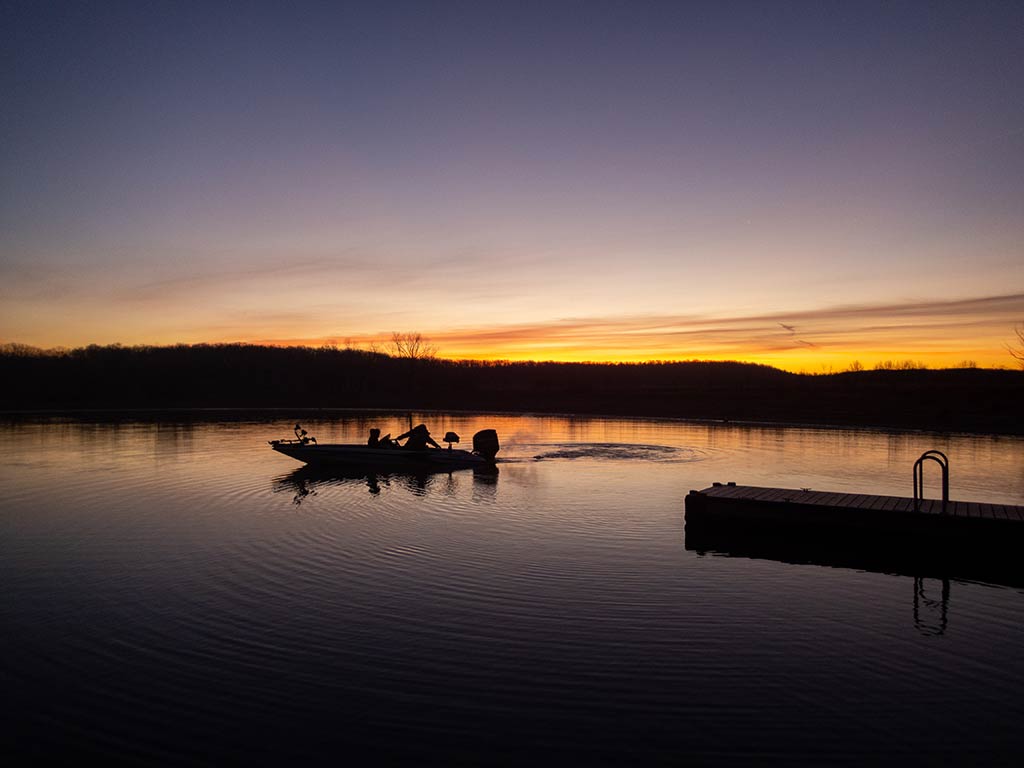
I looked up. It was early and the sun hadn’t quite popped over the horizon. On the far side of the bay, I could see it: an exquisite Bass boat, fiberglass with fancy super-fabulous glitter, giving off enough light to be visible from space. Like a slot machine – or perhaps a tech demo. Three screens sat stacked on the front of the boat, with another two mounted within the steering console. GPS, side-imaging, mapping, forward-facing sonar… All going at once! And an angler twitching a spinning rod like an addict, glued to those screens like Aunt Gertie watching her midday “stories” on the living room TV.
Fishing? I guess.
Still, everyone is different. As I hopped into my beat-up jon boat and started to sort through my small bag of confidence baits, I took an extra second to really soak in my surroundings. The situation I had just witnessed made me very aware of how lucky I was to be out in nature, engaged in an activity I love so early in the morning. Everyone gets to enjoy fishing differently… but… what happens when the fish don’t get to hide anymore?
The Rise of Forward-Facing Sonar
I’m certainly not anti-technology, but what are the pros and cons of forward-facing sonar? Where did it come from, and why is it so popular – and, simultaneously, so hated?
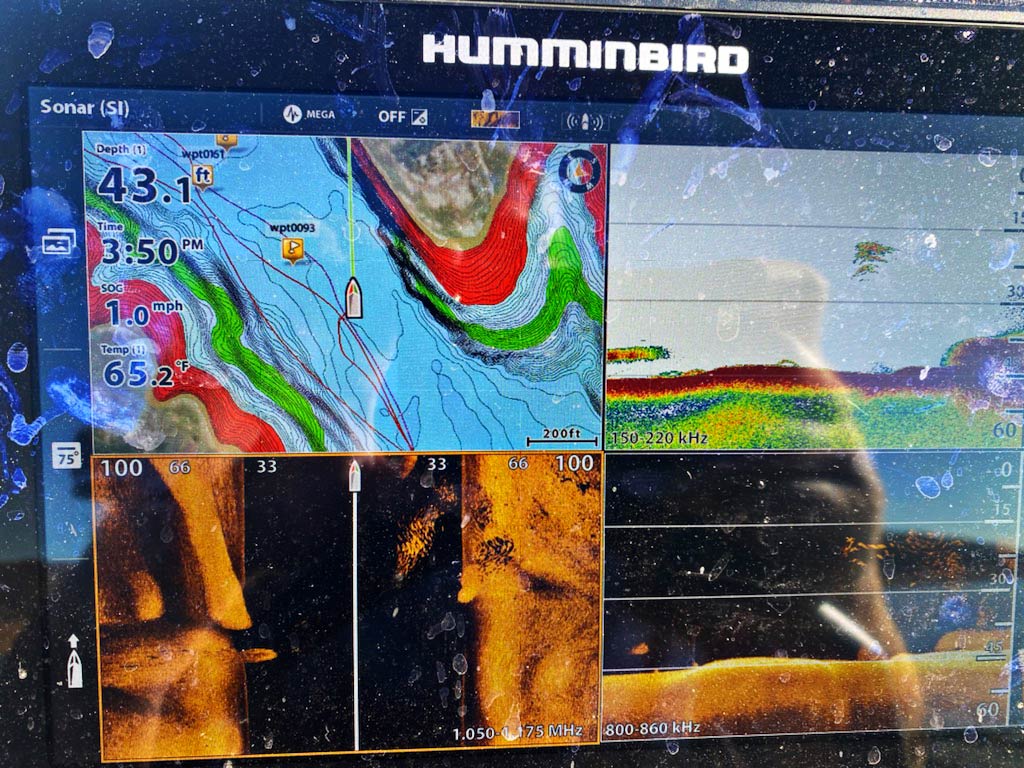
Forward-facing sonar (or FFS for short) is the most disruptive fishing technology I’ve seen in my lifetime. Now notice, I didn’t say it was the most unethical – I’m not about to tell you what’s right or wrong… You have to engage in critical thought and make that call for yourself. What I am going to do, though, is share both sides of the argument. A disruptor is anything that comes along and significantly changes the way things operate.
FFS isn’t just new gear. It’s like a completely new language. It brings you a new way to see underwater. In the past, we had slow, clunky options like the Aqua-Vu camera. A big, heavy lens hanging from an actual cable you held in your hand. Drop it down to inspect an area, then move the boat and repeat. It was time-consuming. With FFS, you can sweep an entire bay by rocking your foot across the trolling motor pedal. Swing that bad boy around and look for blips. You can see what’s in front of you! Live. In motion. It’s like strapping heat-vision goggles to the front of your boat.
Remember the movie “Predator”? Even in the thick of the jungle, elite mercenaries were unable to hide while they were being hunted, unless extreme measures were taken. When you watched that movie, did it seem fair? Or, did it seem like the mercenaries had to overcome impossible odds to survive?
With FFS. the fish don’t just get marked – they get tracked. You can see them swimming. Chasing. Ignoring your bait. Turning. Spooking. Every cast is more like a science experiment than an experience, and the results are instant.
To some, it’s precision. To others, predation.
My First Experience with Forward-Facing Sonar
My first exposure to forward-facing sonar happened on Bull Shoals Lake with a guide named Del Colvin. He’s an absolute hammer, and he was very gracious with his knowledge. If you’ve fished Arkansas or Missouri, you know the water: Massive, deep, intimidating. I remember when I spoke with Del on the phone, he mentioned we’d do a bit of “video gaming.” At first, I laughed. But after two days of catching Smallmouth, Largemouth, and Spotted Bass over 40 to 60 feet of water, my tone changed.
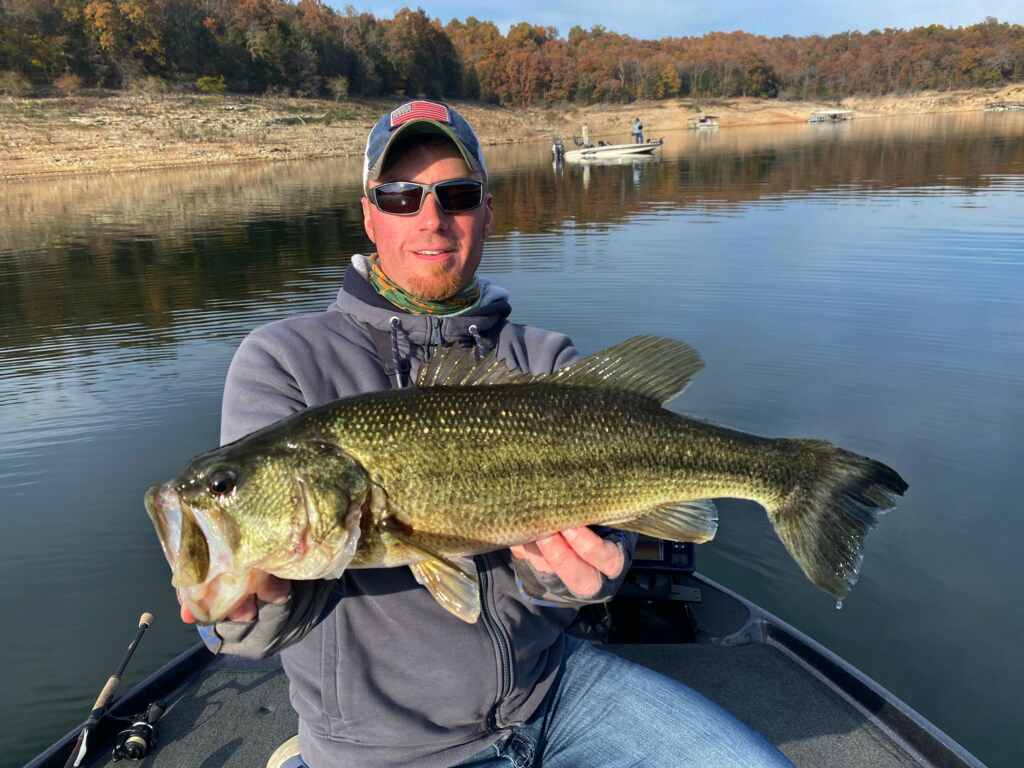
But here’s the thing: I didn’t think anything was wrong with what we were doing. We deployed a multitude of vertical techniques, but we were using FFS to search for moving targets. Those targets weren’t individual fish, they were schools of bait.
We weren’t sniping. We were scanning – using the technology to locate swirling underwater clouds, and then fishing through to find active predators.
Sometimes it worked. Other times, it didn’t. But over the course of my 2-day trip, it felt fair. It felt earned. But this was 4 years ago, and it’s no secret that FFS is now being used in a very different way…
FFS Scanning vs. Sniping
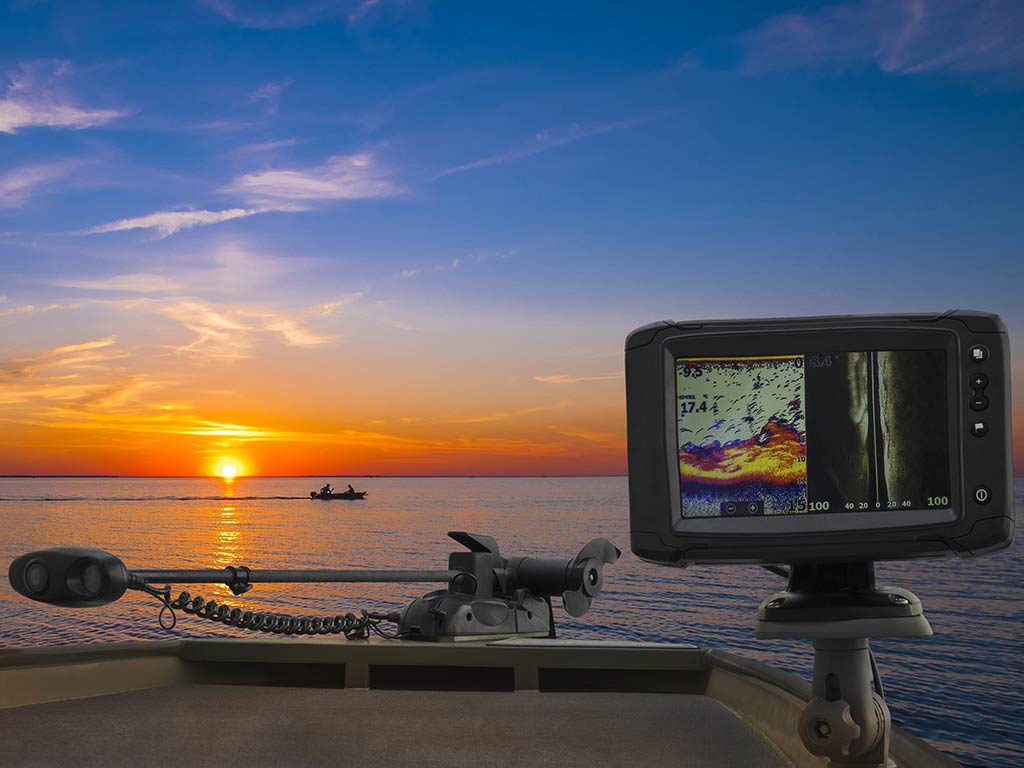
We’ve recently seen a major shift in how FFS is utilized, especially in professional events. There is less emphasis placed on covering water. Instead, anglers are covering fish – individual fish, one at a time. Fishermen will post up, spot-lock, or shallow-water anchor after locking on to a target. They’ll throw a precision-plastic on a jig towards that fish again and again, and again – jiggling their spinning rod, watching how the fish reacts, and not leaving until they’ve pestered the target into biting.
The argument, of course, is that anglers without predator-style thermals would have left that same area long ago and utilized searchbaits like lipless cranks or other fast-moving options to find active fish. But when you can see your prey, you no longer need to cover water.
If this sounds slow and tedious, it’s because it is! To many anglers, it’s mind-numbing. But to others, it’s the future. The next level. A refined skill that separates the good from the great.
But that leads us to a highly debatable question:
Is FFS Cheating?
Well, this depends on who you ask. Some anglers think it’s the most important advancement since the Lowrance flasher (the “little green box”), while others say it’s the end of the sport as we know it. Where do I land? I’ll tell you after I make a brief case for both camps…
The Case For Forward-Facing Sonar
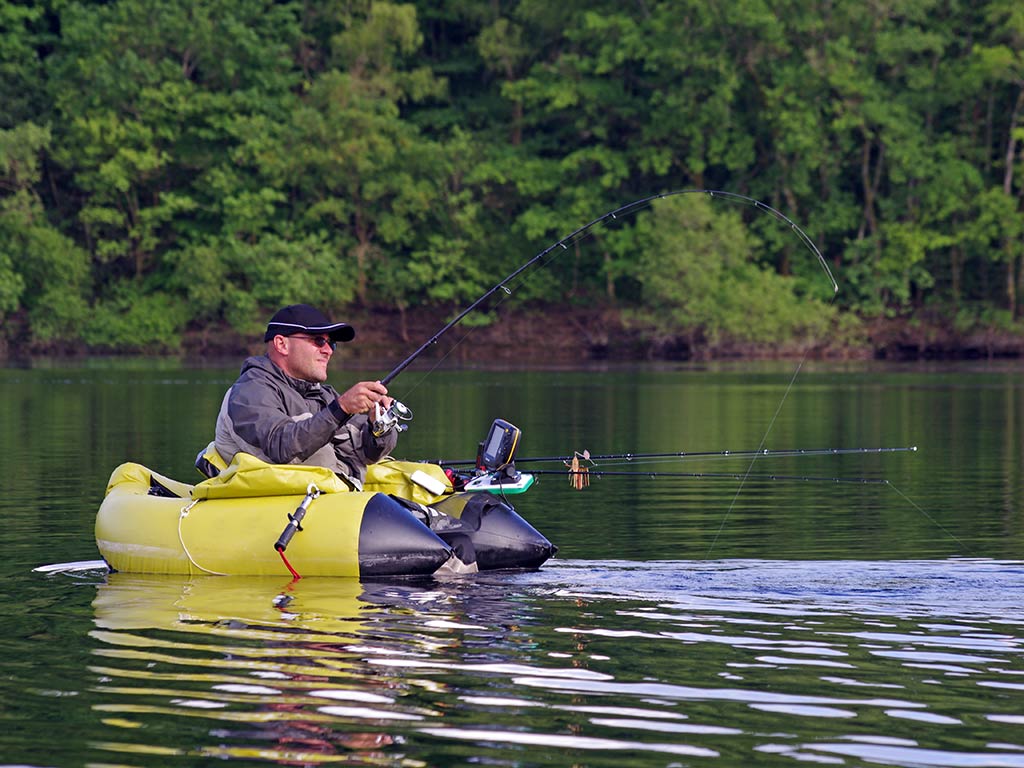
To supporters, FFS is just another tool. Not a shortcut, not a cheat code… Just better data. It allows anglers to:
- Shorten the learning curve. Beginners don’t have to guess. They can see what’s happening and learn fast.
- Refine presentations. You can learn how fish react by observing instant feedback. You learn what triggers a bite, as every cast teaches you something.
- Level the playing field. Lakes that used to take years to master can now be broken down in an afternoon.
- Improve efficiency. No more fishing dead water! Novice anglers have a better chance at the fish of a lifetime.
The Case Against Forward-Facing Sonar
To critics, FFS rips the soul out of fishing. They claim it isn’t evolution, it’s the destruction of sport, skill, and the fisheries themselves. It causes anglers to:
- Disconnect from nature. You’re not reading the wind, sky, water or weather conditions. You’re reading a screen.
- Cherry-pick trophy fish. FFS makes it easy to isolate and remove the biggest fish from a system – even those in deep water! This pressure has consequences.
- Switch to easy mode. FFS reduces the challenge. Is it really “fishing” when you poke a creature again and again until it bites?
- Become elitist. Many claim this is just another expense that increases the barrier to entry. Pro fishermen used to be “the everyman” – regular guys. That was the appeal. Now it seems like pros are required to be independently wealthy.
But the most important question in the forward-facing sonar debate that we all have to ask is:
What effect does FFS have on the fish, the fisheries, and anglers themselves?
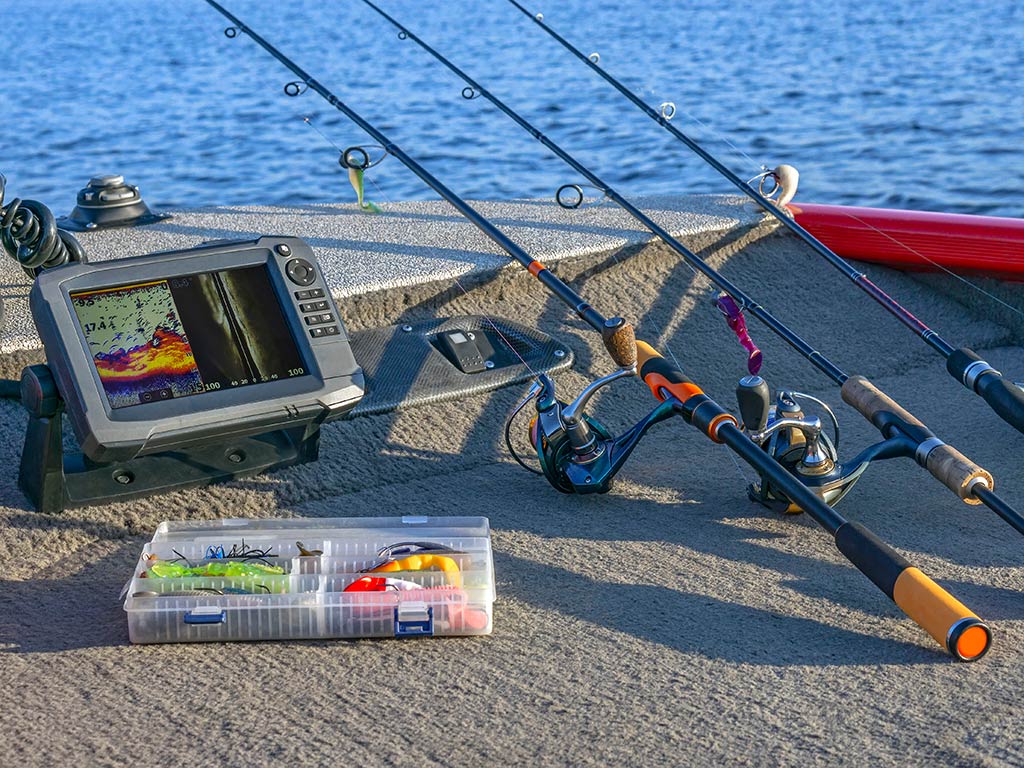
No matter where you sit currently, we all have to agree that, at the end of the day, our responsibility as anglers is to leave the sport better than we found it. We have to protect this game. After all, it’s precious – and it was handed down to us.
Fishing isn’t just recreation – it’s tradition. It’s quality time with Dad, bonding on the water. Standing by the fryer with Grandpa, learning about how things were when he was a kid. It’s time with the wife, sons, and daughters, surrounded by squeals of delight as bobbers bounce and bloop while the sun sets on the ol’ farm pond.
It’s time by ourselves – connecting with our Creator, honing skills and achieving victory so sweet that it changes us at our very core.
This is fishing.
When that starts to shift, we have to be very honest and very careful – even if that means ruffling a few feathers. Should anglers be watching screens or watching the water? Counting pixels, or checking the clouds? Teaching our kids to cast and develop a sense of feel, or just make sure the batteries are charged before they hit the lake?
Are we as anglers gaining something or losing something?
My Minimalist Approach
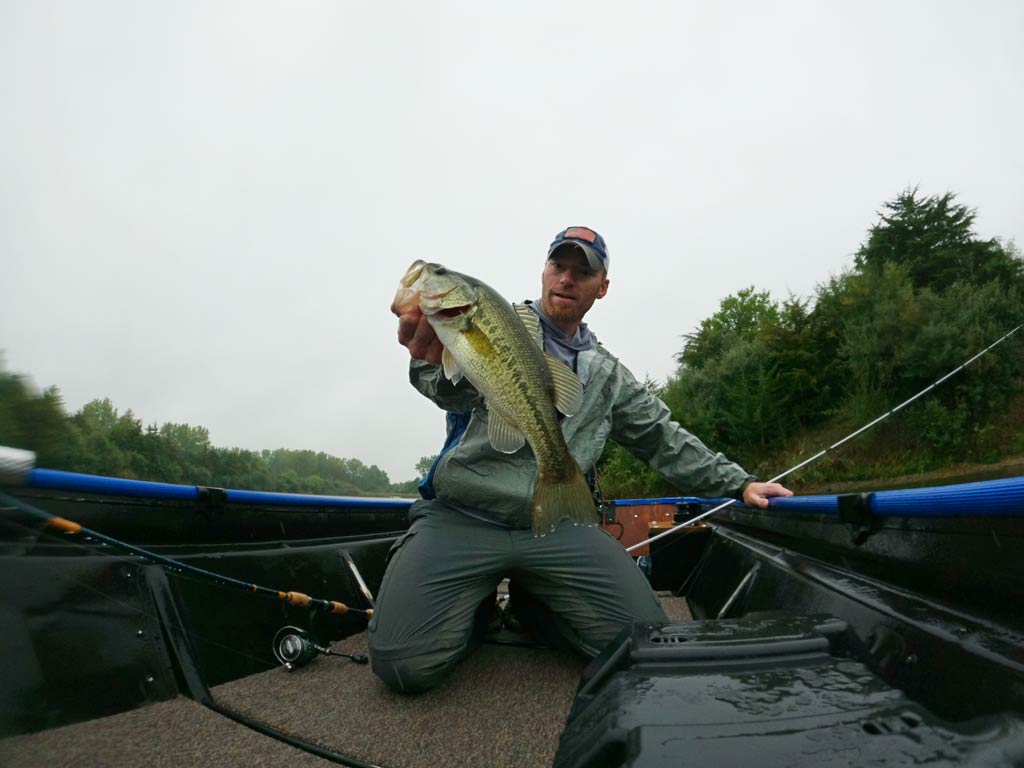
You’ve heard me say it before: more gear doesn’t equal more success. I’m not anti-gear or anti-tech, but there’s a reason I love running cheap kayaks and my beat-up jon boat. A couple of rods, a backpack with a single base box… I take less because it forces me to focus – to zero in on the conditions, the techniques, and the fish.
It forces me to learn. And it also causes me to fail.
But failure is what stimulates growth. Real growth. And when I win, it feels earned. I never, ever want to lose that.
FFS isn’t part of my system at this time. One day? Maybe. But right now, I’ll continue to focus my limited fishing time on intentionally seeking out water that other anglers can’t (or won’t) fish. I like the challenge, the exercise, the solitude. But one day, if I move closer to those big, deep southern reservoirs, the pull to pick up a forward-facing sonar unit will be very strong.
However, if we learn that FFS is truly destroying fisheries, lowering the fish population, and threatening their very existence… I’m out.
Just because we can do something, it doesn’t mean we should.
Where do we go from here?
FFS is here. That’s not the debate. The debate is: how do we as anglers protect our sport, protect our traditions, and protect the fish so that our children will have the same – or better – opportunities to be shaped by the incredible activity that is fishing?
You get to choose.

Listen to other anglers and have a dialogue. Respectfully. We’re at a crossroads, and I for one plan to keep listening to seek clarity.
But now? It’s time for me to load up that cheap jon boat. Tomorrow I’m looking forward to dipping my oars into the water, wind-burned cheeks, a clown-red nose, sore shoulders, and the excitement that comes with not knowing what will happen on the other end of the next cast…
Tight lines & Godspeed, patriots!
Where do you stand on the forward-facing sonar debate? Are you a skeptic or have you been utilizing it already? Share your experiences in the comments below!
